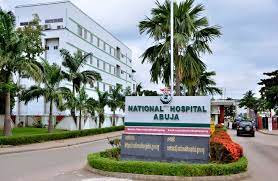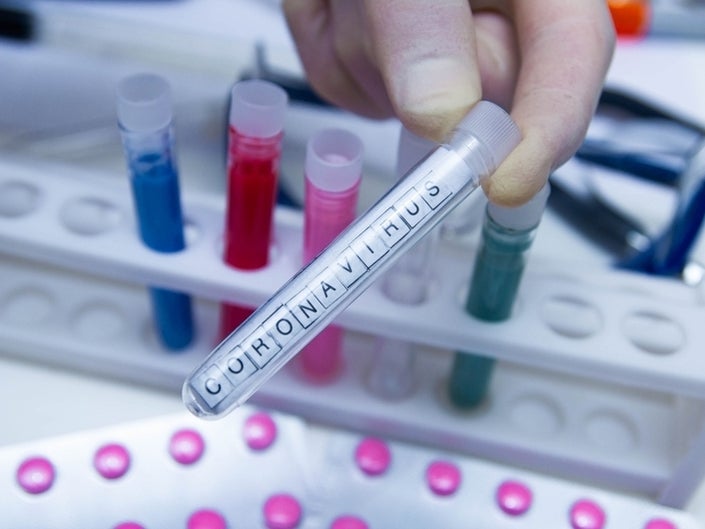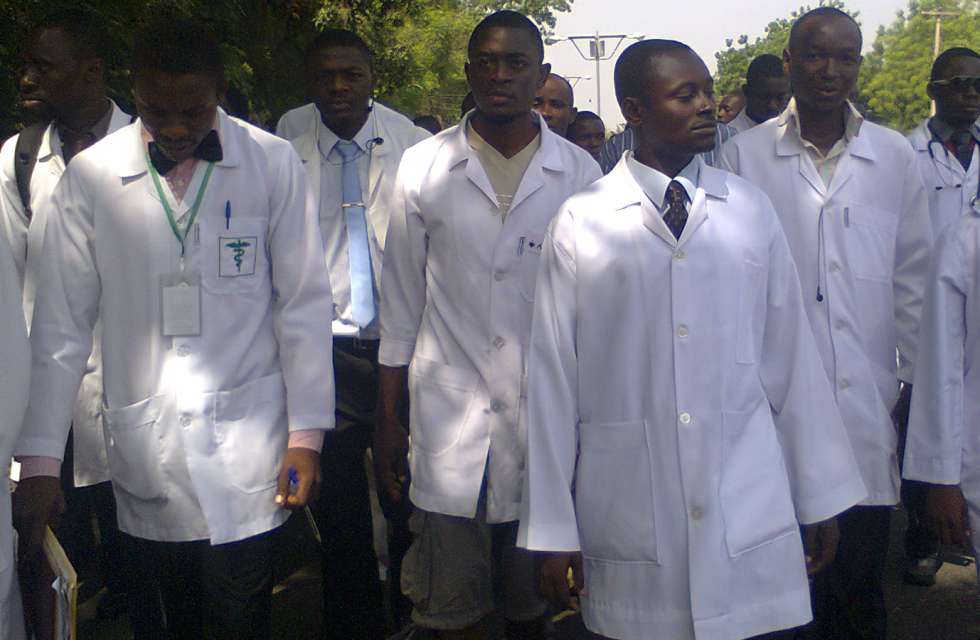Over 500 Workers Left National Hospital In 2 Years – CMD
More than 500 personnel of the National Hospital, Abuja (NHA), left its services in search of greener pastures in the last two years, its Chief Medical Director, Prof. Mahmud Raji, has disclosed.
Raji told the News Agency of Nigeria (NAN) on Sunday in Abuja that most of them went abroad in search of better working conditions.
“The way they leave is a very hurtful thing for all hospital administrators.
“The most pitiful and worrisome aspect of it is the amount of money the Nigerian government has invested into each of these individuals either a doctor, a nurse, a pharmacist, a physiotherapist or whoever it is that leaves.
He said that the brain drain syndrome was an almost everyday activity as he treats two or three files of young people wishing to leave.
“Sometimes, not only young people; some people have actually gone through the ranks with lots of experience that they could teach other people. So, Nigeria is losing so much, painfully.
“Here, we have lost a number of quite senior doctors, especially the middle cadre doctors, and the very young ones.
“Nurses have also left from the middle cadre and the younger ones. Some of our medical engineers are hotcakes outside and have left.
“I must tell you, Nigeria trains people so much, Nigerian graduates and staff are well sought after, all over,” he added.
On reasons for their departure, he said that remuneration and job satisfaction had always topped the list.
“For instance, if a doctor or a nurse comes here, he or she needs to see an environment that is quite serene, quite beautiful, even to rest in a very comfortable area during their one hour break.
“At least you are able to have something to eat, replenish your energy before you go back to the next phase of work, but usually, in our hospitals in Nigeria, we don’t have such.
“In terms of the remuneration, it may not be as good as what you would expect elsewhere. Even though I must say the purchasing power in Nigeria is far better than the purchasing power elsewhere and our money is still able to buy something.
“We should also look at the unsolved problem of inter-professional rivalry that also eats into people’s psyche. People should be comfortable with the next person they’re working with, be it a nurse, a physiotherapist or whoever.”
Raji also said that the necessary equipment needed to work were not there and when these equipment are either non-existent or obsolete, the healthcare practitioners feel that more should have been done.
He, however, said that past governments had tried by taking very decisive stance on matters of health.
The current government has also put in a lot to rejig the health sector, he added.
“From what we can all see, the current administration has actually rekindled that hope in us that in the next couple of months, at couple of years, we will be able to see a change or a shift in this mindset among Nigerian health professionals eager to leave the country.
“Hopefully, we should even be able to attract them to come back while we retain the ones that are here.”
He, however, said that NHA had employed various strategies to try to retain the healthcare personnel working in it.
“I may not be able to change their remuneration since this is within the purview of government, we try to pacify them because remuneration is usually the first thing people complain about.
“Secondly, in terms of welfare, at least we have tried as much as possible to relieve some of them.
“We have established cooperatives to assist staff, either financially or in whichever way they can be supported to get mortgages for their homes and other things.
“On our own, we sometimes get these mortgage organisations to come and assist our staff. We have been able to get some buses to relieve the stress that the staff get in conveying themselves from work back home and from home to work.
“We are trying to also make the environment where they work a bit more serene and accommodating for them. This would require a lot of funding, but at least with the little that we are able to get, we are able to do bit by bit.”
In terms of training, he said that since training out of the country may be expensive, the hospital arranges local trainings and, when it is able to, it supports them to go for trainings within the country and sometimes out of the country as the funds allow.
The CMD said the hospital was also trying to fix the equipment that were not working efficiently or not working at all.
“Through budgetary and intervention pathways, we are also trying to get in some more new equipment that will make them happy while doing their jobs.
“When you go to our laboratories now, you will see that they are not as they used to be.
“We have so many automated machines; with these machines, all you need to do is just to put in samples and then the thing runs by itself, unlike earlier on where a person will have to run this, after this, you do that. So, now, they have it a bit easier.
“They also feel like, yes, we are working where we would wish to have flown to, to work. So we are upgrading our laboratories or rather, to a very large extent, we are comfortable to call them automated laboratories.
“That’s what we are trying to do, at least in our own little ways, to make life better and the good thing is, some of them do appreciate it.
“But, however much you try, some people are already fixated on leaving,” he said.
On the issue of inter-professional rivalry in the healthcare profession, he said that even though it exists in other institutions, at NHA, there has been some sort of a very harmonious relationship.
He added that hardly were their local strikes at NHA in the last couple of years because of that harmonious relationship.
“But the staff are not in isolation as they also mingle with other people outside.
“So, once in a while you would hear such complaints, but then some of these issues are actually realistic that you find in other centres and it can really be quite bad.
“It sometimes affects the function of some of such organisations but we are lucky here that we are able to, at least, control it.”
To put an end to it or at least control it, he said that several attempts were made to resolve the problem, but sometimes when solutions were about coming, some other bodies may lobby to stop it.
He recalled that a couple of years ago, a certain committee was set up by the Federal Government to look into it and the committee made some recommendations.
“I am not sure those recommendations have been fully implemented, but things might probably have changed now such that it’s time to probably have a new committee set up to look into this.
“I assure you that with the current administration and the mandate given by the president to resolve the issues in healthcare and the ministers we have running the ministry, people have the confidence that they have the roadmap to solving this problem.
“We have to look at it holistically such that you don’t just see doctors as a group, solve their problem, but while solving their problem you will have problem of nurses.
“So also, when you call the nurses and solve their problem, you cause a problem for the radiologist or the pharmacist and things like that.
“From the feelers we’re having from our interactions with those of our leaders in the ministry now, they’re likely going to look at it in that holistic manner, where it should be a win-win for all facets of healthcare.”





